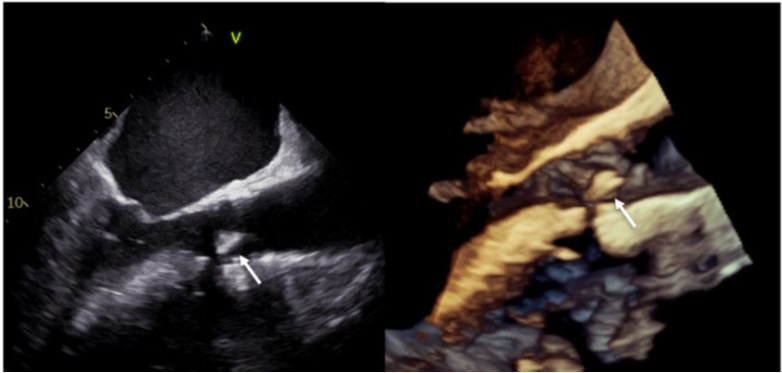Fungal Endocarditis: A Successful Case with Medical Therapy Alone
Endocardite Fúngica: Um Caso de Sucesso da Terapêutica Médica Isolada
DOI:
https://doi.org/10.60591/crspmi.237Palavras-chave:
Antifúngicos/uso terapêutico, Candida, Endocardite Bacteriana/terapêuticaResumo
A endocardite fúngica é uma condição rara e potencialmente fatal, em geral causada pelas espécies Candida e Aspergillus. Incide maioritariamente em doentes imunossuprimidos, com história pregressa de endocardite, ou com próteses ou dispositivos intracardíacos. As terapêuticas antifúngicas e cirúrgicas são essenciais pelo intuito curativo e evicção de fenómenos embólicos. São raros os casos de sucesso tratados com terapêutica médica isolada.
Apresentamos um homem de 80 anos, portador de pacemaker, prótese valvular aórtica com endocardite bacteriana prévia (sem intervenção valvular, com substituição do pacemaker), internado por endocardite por Candida metapsilosis. Iniciou caspofungina e voriconazol com persistência de candidemia, alterando-se para anfotericina B e flucitosina, com posterior supressão crónica com itraconazol. Substituiu os elétrodos do pacemaker, porém sem intervenção valvular. Apesar
de múltiplas intercorrências, teve alta com boa evolução e sem recorrência no seguimento em ambulatório.
Este caso questiona o papel da cirurgia valvular no doente
com boa resposta à terapêutica antifúngica isolada, podendo esta última ser considerada tratamento curativo da endocardite fúngica.
Downloads
Referências
Jamil Y, Akinleye A, Mirzaei M, Lempel M, Farhat K, Pan S. Candida endocarditis: Update on management considerations. World J Cardiol. 2023;15):469-78. doi: 10.4330/wjc.v15.i10.469.
Rivoisy C, Vena A, Schaeffer L, Charlier C, Fontanet A, Delahaye F, et al. Prosthetic Valve Candida spp. Endocarditis: New Insights Into Long-term Prognosis-The ESCAPE Study. Clin Infect Dis. 2018;66:825-32. doi: 10.1093/cid/cix913.
2023 ESC Guidelines for the management of endocarditis: Developed by the task force on the management of endocarditis of the European Society of Cardiology (ESC) Endorsed by the European Association for Cardio-Thoracic Surgery (EACTS) and the European Association of Nuclear Medicine (EANM). Eur Heart J.2023;44:3948–4042. doi: 10.1093/eurheartj/ehad193.
Kauffman MD. Candida endocarditis and suppurative thrombophlebitis. UpToDate. [accessed 5 February 2022] Available at: https://www.uptodate. com/contents/candida-endocarditis-and-suppurative-thrombophlebitis
Pappas PG, Kauffman CA, Andes DR, Clancy CJ, Marr KA, Ostrosky-Zeichner L, Reboli AC, Schuster MG, Vazquez JA, Walsh TJ, Zaoutis TE, Sobel JD. Clinical Practice Guideline for the Management of Candidiasis: 2016 Update by the Infectious Diseases Society of America. Clin Infect Dis. 2016;62:e1-50. doi: 10.1093/cid/civ933.
Yang Q, Liu Z, Wang Y, Xie J, Zhang K, Dong Y, et al. In vitro synergistic antifungal activities of caspofungin in combination with fluconazole or voriconazole against Candida species determined by the Etest method. Int J Infect Dis. 2022;122:982-90. doi: 10.1016/j.ijid.2022.07.056.
Wang A, Fosbøl EL. Current recommendations and uncertainties for surgical treatment of infective endocarditis: a comparison of American and European cardiovascular guidelines. Eur Heart J. 2022;43:1617-25. doi: 10.1093/eurheartj/ehab898.
Sahra S, Javed A, Jahangir A, Thind SK. Pharmacological options for Candida albicans Endocarditis at the roadblock with irrecoverable prosthetics and drug interactions: a case report and review of literature. BMC Infect Dis. 2023;23:304. doi: 10.1186/s12879-023-08267-z.

Downloads
Publicado
Como Citar
Edição
Secção
Categorias
Licença
Direitos de Autor (c) 2024 Jéssica Abreu, Daniela Mateus, Ema Leal, Ana Raquel Garrote, Fernando Maltez

Este trabalho encontra-se publicado com a Licença Internacional Creative Commons Atribuição 4.0.



